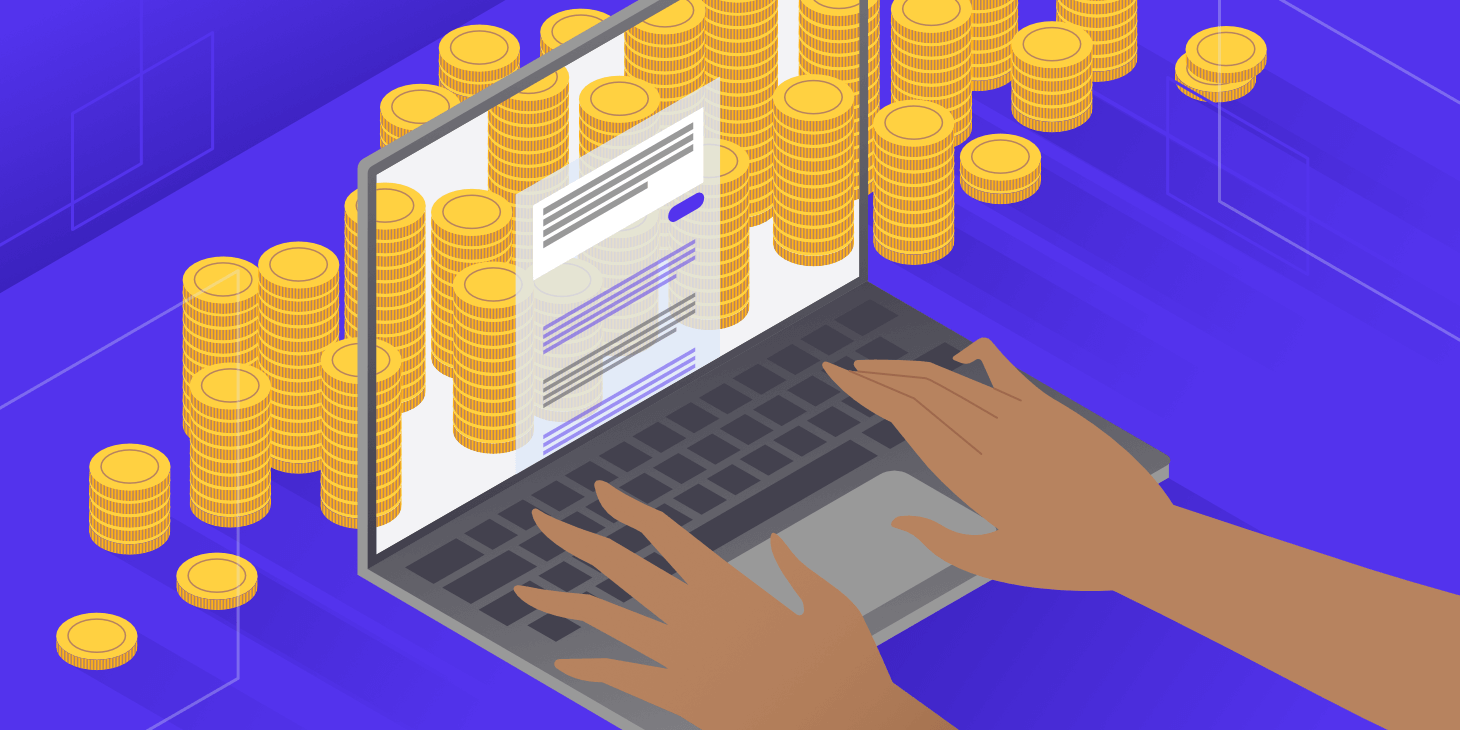Have you spent a long time writing content for your blog or website? You may be here because you are now getting routine visitors to your website and looking to earn money off of your website traffic. This article will explain in detail various ways you can convert your website traffic into cash.
Before monetizing your blog, there are several things you should have in place to ensure your success:
- High-quality content: To attract and retain readers, your blog must have high-quality content that is informative, engaging, and well-written.
- A niche and target audience: Knowing your niche and target audience is critical for creating content that resonates with your readers and building a loyal following.
- Traffic: Without a significant amount of traffic, monetizing your blog will be challenging. To increase traffic, you may need to invest in search engine optimization (SEO), social media marketing, or paid advertising.
Once you’ve acquired a steady flow of website traffic to your blog you should be looking at the following ways to earn money from your visitors:
1. Digital advertising
You can sell ad space on your blog to businesses or use a program like Google AdSense to display ads on your site. Google AdSense is a program run by Google that allows website owners and bloggers to display ads on their website and earn money when users click on those ads.
When you sign up for AdSense, Google will provide you with a code to add to your website. This code will display ads on your website that are relevant to the content of your site.
When a user clicks on one of the ads, you will earn a small amount of money, typically a few cents to a few dollars. The amount you earn per click is determined by a variety of factors, including the type of ad and the cost-per-click (CPC) that the advertiser has bid for the ad.
It’s a popular way for website owners to monetize their website traffic and content, as it requires minimal effort to set up and maintain, and can generate significant revenue over time.
2. Affiliate marketing
Affiliate marketing is a type of performance-based marketing in which a business rewards one or more affiliates for each visitor or customer brought about by the affiliate’s own marketing efforts.
In affiliate marketing, a merchant partners with an affiliate (also known as the publisher or promoter) to promote their product or service. The affiliate earns a commission for each sale or lead that is generated through their unique referral link.
Affiliates typically promote the merchant’s products through their own personal networks, websites, or social media channels. They may also use search engine optimization (SEO) techniques to drive traffic to the merchant’s website. The affiliate is given a unique referral link, a special tracking code or a coupon code which they can use to promote the merchant’s product. Whenever a sale is made through the referral link, the affiliate earns a commission. You can publish content related to the product(s) you are promoting and place your referral link within the article to generate potential sales.
3. Product sales
You can sell your own products, such as e-books or courses, through your blog. You can start your own website with specified products that your target audience would find useful.
You don’t need to manufacture your own products in order to sell online. You can find reliable products through international or local suppliers and dropship the products.
You can setup an online store through websites like Shopify or Wix and promote your store on your blog. Showcase the products you are selling within a blog post or YouTube video.
Setup a live chat or contact form on your blog or online store and offer customer support for your customers.
4. Consulting or coaching
You can leverage your expertise and experience to offer consulting or coaching services to your readers.
Offer one-on-one sessions: You can offer individual coaching or consulting sessions to clients, either in-person or online, and charge a fee for your time and expertise.
Group coaching or workshops: You can also offer group coaching sessions or workshops, which allow you to work with multiple clients at once and potentially increase your income.
You can partner with businesses or organizations to offer your coaching or consulting services to their employees or members.
5. Membership or subscription
You can charge readers to access certain content or features on your blog.
Create premium content and set a fair price for your readers to be able to access it. Be careful not to charge too much as it may scare off new readers on your website.
Build trust with your readers by publishing consistent and quality content relating to your niche or industry.
Readers who trust the author or publisher are more likely to pay money to access premium content.
6. Paid events
You can organize paid webinars, online courses, or virtual conferences.
Define your event’s purpose and target audience: Determine what type of event you want to organize and who you want to attend. This will help you determine the location, date, and format of your event.
Set a budget and determine ticket prices: Establish a budget for your event and determine how much you need to charge for tickets to cover your expenses and make a profit.
Choose a venue: Select a suitable venue that can accommodate your target audience and the format of your event. Consider factors such as location, accessibility, and available facilities.
Promote your event: Develop a marketing plan to promote your event to your target audience. Utilize social media, email, and other channels including your blog to reach potential attendees.
Set up ticket sales: Decide on a ticketing platform or service to manage ticket sales, and create a system for tracking attendance and handling payment processing.
7. Crowdfunding
Define your project: Determine what you want to raise funds for, and set a clear goal for your campaign.
Choose a platform: Select a crowdfunding platform that matches your goals, audience, and type of project. Some popular platforms include Kickstarter, Indiegogo, and GoFundMe.
Create a compelling campaign: Develop a compelling story, write a clear description, and create a video to explain your project and why you need funding.
Set a funding goal and timeline: Determine how much you need to raise and set a deadline for your campaign. Be realistic and keep in mind that most crowdfunding platforms take a percentage of the funds raised.
Launch your campaign: Once you have everything in place, launch your campaign and start promoting it widely. Utilize social media, email and your blog to reach potential backers.
Summary
Monetizing your blog can have numerous benefits. Firstly, it can provide a source of income that allows you to earn money doing something you enjoy. Secondly, it can provide opportunities to work with brands and companies in your niche, leading to increased exposure and credibility. Thirdly, it can provide opportunities for personal and professional growth, allowing you to develop skills in marketing, entrepreneurship, and networking. Fourthly, it can help you build a community around your blog and engage with your readers on a deeper level. Finally, it can provide flexibility in your career, allowing you to work from anywhere and on your own schedule. Overall, monetizing your blog can be a great way to turn your passion for blogging into a profitable and fulfilling career.





